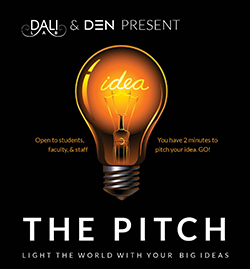The Neukom Digital Arts Leadership and Innovation (DALI) Lab opened its doors less than two years ago and has since become one of Dartmouth’s fastest growing extracurricular activities. It employs approximately 60 students, a combination of designers and developers, each term and has completed more than 50 projects since its opening in April 2013, said Professor Lorie Loeb, Executive Director of the DALI Lab. While initially almost anyone with coding or design experience could join the DALI Lab at its outset, competition has since increased, with DALI accepting less than 20% of all applications for this year. Once accepted, a spot is not guaranteed for more than one term, as members have to reapply on a quarterly basis. Loeb attributes the incredible growth of the lab to the practicality of the services it offers: it provides innovative solutions to the problems with which it’s presented. Going forward, “We’re looking to solidify the foundation [for what kind of student we attract] after our initial rapid growth to help keep the program going forward,” she said.
Once accepted into the DALI Lab, a feat in-and-of-itself, it is easy to see why its members want to stay involved. Not only are there cool toys like a 3D printer, big screen TV, and an Xbox (“for development purposes only”), and not only can DALI members turn on and off the lights in the lab by tapping on their smartphones, they also learn valuable skills that they would not in a classroom setting. Unlike most CS classes, where students work individually or in large groups, in DALI, small teams of students work towards a common goal, be it a coding-based or a design-based project. DALI members also attest that they have met some of their best friends at the lab, and love working there on a day-to-day basis.
Faizan Kanji ’15 has been a developer for DALI since its second term of operation and has worked on three projects over the course of the last two years. He is currently the project manager, leading a team of five undergraduate students and coordinating with faculty advisor Dr. Jay C. Buckey M.D., for one of the lab’s most high profile projects to date called “Psych on Ice.” Funded by a three-year grant from NASA’s National Space Biomedical Research Institute, their task is to create a web application to help astronauts better manage conflicts, and better cope with stress and depression during long duration space flights. At press time, the team has completed the conflict management module and begun work on the stress module with the hope of completing it by the end of this term.
Faizan’s team, however, is not the only DALI group working on this project. A separate team of designers is working to supplement the coded training modules with virtual reality, which will allow astronauts to escape the monotonous environment around them. They are working to create stimulating visuals of scenic and peaceful places to which astronauts can temporarily escape by entering the Oculus Rift, a virtual reality headset designed for commercial, videogame applications. “I think of the most incredible things about this project is that they are using something designed for video games… for something else entirely, probably in a way that not even the technology’s creator would have imagined,” says Henry Wilson ’18, a new member of the DALI lab. “That’s really what the DALI lab is all about: finding new and creative ways to solve the world’s current problems.” Director Loeb also added that most of the DALI lab’s partner organizations and clients come to them seeking fresh, alternative approaches. “DALI helps its partners get through the noise of millions of websites and thousands of apps… to help partners communicate effectively,” she said.
In addition to working with larger organizations like NASA, the DALI Lab also takes on select entrepreneurial projects, mostly selected through the termly “Pitch” competition, co-hosted by both DALI and DEN (Dartmouth Entrepreneurial Network). In this competition, twenty student-entrepreneurs pitch their startup ideas to a panel of DEN and DALI judges in front of an audience. The winners are given funding of up to $3,000 and, if requested, developmental and design support from the DALI lab. Companies that have benefited from The Pitch and DALI include “Tether Gaming,” a mobile gaming platform for playing together in-person, “Housing Cake,” which eases process of finding housing in big cities, and “The Ropes,” which helps Dartmouth students manage their meal plans on their phones. One of the winners from the 14F pitch competition, James Furnary ’16 said, “Meeting with coders at DALI was an incredibly helpful experience: it really helped us solidify our idea. They were friendly, and very adaptive to our wishes, offering very valuable feedback as we looked to progress into the development stage.”
“It’s definitely an inspiring place. There’s a lot of creativity and innovation, and everyone is willing to help you out when you are struggling with a particular coding concept. It’s just a marvelous experience to be around so many people that love doing what I love to do,” said Wilson at the close of his interview. “There really isn’t any place on campus, at least that I know of, that could offer a remotely similar experience. I’m really grateful to be a part of DALI this term and sincerely hope to remain an active member in the lab at least until graduation.”
Samuel L. Hatcher also contributed to this article.


Be the first to comment on "A Conversation with DALI"